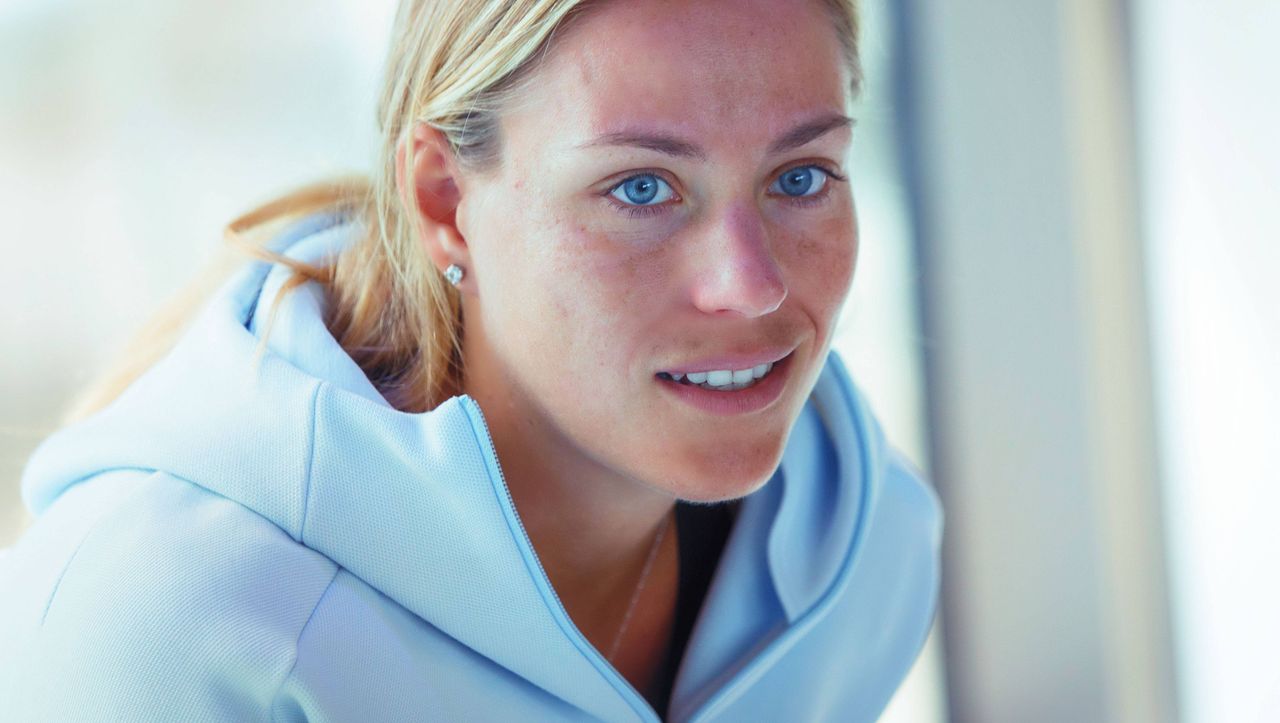Angelique Kerber at the Australian Open: She was ready for a reboot – then came into quarantine
Marsh Tyler January 27, 2021 0
It’s a complicated start to the new tennis season. When the Australian Open begins in Melbourne on February 8th, the best players in the world will have all sorts of preparations behind. Some got off the plane and were able to train right after the mandatory short quarantine.
With 72 professionals coming from abroad, things didn’t go smoothly. As it turned out, people infected with the Coronavirus were on their flights. So local authorities have taken strict isolation measures. The result: a 14-day quarantine in a hotel room. Angelique Kerber, Germany’s best tennis player, was also affected. The 2016 Australian Open winner landed in Melbourne on January 15th. Since then, the 33-year-old has moved nearly 20 square meters.
SPIEGEL: Mrs. Kerber, you recently celebrated your birthday. How to celebrate quarantine in a hotel room?
Kerber: It was a birthday that I won’t soon forget. I was alone in my room. Quite close in terms of location and time, but felt a long way away from the Australian Open, which is usually the occasion on my birthday. The last few years it has always been a special occasion because fans have been singing on the field or we have had a nice dinner in the evening. I had to let it go this year, but at least I got to talk to several close friends about Facetime and had a feeling I could still party a little.
SPIEGEL: I have been in quarantine for a few days now. How will the two weeks affect your fitness?
Kerber: My preparations for the season went well; It has been nearly one of the best in recent years. I finally managed to train without injuries, I crossed my limits and before leaving for Australia I felt fit as I hadn’t felt in a long time. The strict quarantine conditions are a real challenge, but I try to improvise and mitigate the negative impacts on my fitness level as much as possible.
Some tennis professionals who now find themselves in isolation are getting creative. On their social media channels, you can see how they converted their rankings into tennis walls and completed punching training. Still others build small obstacle paths and jump over bath towels with one leg. Ultimate goal: to maintain fitness in some way.
SPIEGEL: What does training your hotel room look like?
Kerber: I have some fitness equipment in my room that I can count on, but this of course does not replace sessions on the tennis court. What matters now is getting the most out of the situation.
SPIEGEL: Are you afraid of injuring yourself when you start?
Kerber: The performance intensity is extremely high especially in Grand Slam tournaments. So you have to be ready to push your physical limits in the first few laps. The prerequisite for this is that you are in full training to reduce the risk of injury. Now, of course, that would be difficult. For me, after being quarantined, it would be important to get the tension out on the tennis court in the shortest time possible and with just a few units and finding the rhythm on the court.
Angelique Kerber Winning the 2016 Australian Open: She needs absolute fitness for her tough game
Photo: Quinn Rooney / Getty Images
SPIEGEL: Two weeks without service can be dangerous for shoulder muscles and tendons.
Kerber: The situation is unfamiliar to me, so I can’t yet say how my body will react to it. I have fewer worries about the shoulder. But what I cannot emulate at the moment are sudden moves on the field and short sprints in rallies. I will feel my way carefully and handle change carefully.
Some players complained about the conditions present for some professionals. Above all, Novak Djokovic was unaffected by the quarantine himself. The first-place holder in the men’s world rankings has campaigned hard to relieve isolation. Djokovic’s comments were met with criticism, with the Serbs piling up a justification from a long page on social media. Meanwhile, the pros had a discussion with Australian Open director Craig Tilly, and it eased things a little. However: Belinda Bensic of Switzerland, who, like Kerber, is quarantined in a Melbourne hotel room, talks about “chaos at the Australian Open” even before the tournament begins.
SPIEGEL: Dominic Timm, number three in the world rankings for men, spoke of a critical competitive disadvantage for the professionals in quarantine. Do you share the opinion?
Kerber: The requirements in the two groups are very different. Some can train for up to five hours a day, and others obey strict quarantine rules. I accept it and try to take advantage of the situation. Although I know: After two weeks of quarantine in my hotel room, I can’t expect much from the start of the season.
Early next week, the quarantine of hotel rooms for the majority of the professionals involved ended. There will then be a WTA 500 player tournament and two smaller ATP 250 men’s competitions as well as the ATP Cup tournament. All tournaments are held on the grounds of the Australian Open.
SPIEGEL: Is it possible that the professionals are afraid of injury and cancel the preparatory tournaments? Does this play a role in your plans?
Kerber: You will see how everyone assesses the risks themselves. But the anxiety is fully justified, and also on the background that the season is just beginning. For me, I’ll take it slowly for the first training sessions after being quarantined on the field in order to see how my body reacts to it. But it worked a tightrope. On the other hand, before the Grand Slam, it is extremely important that you practice matches.
SPIEGEL: If you dare to look forward to the Australian Open: What kind of tournament could you be? What would you be happy with?
Kerber: My belief has always been to play round after round and never look far ahead. This is more true than ever in the current circumstances. I’m realistic and don’t expect much. I still look forward to getting back on the pitch soon.

Communicator. Reader. Hipster-friendly introvert. General zombie specialist. Tv trailblazer






